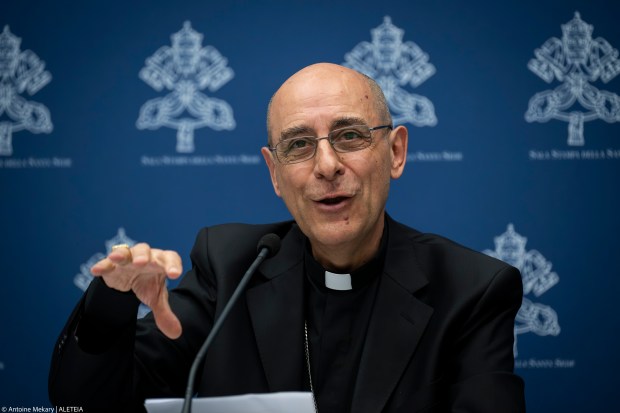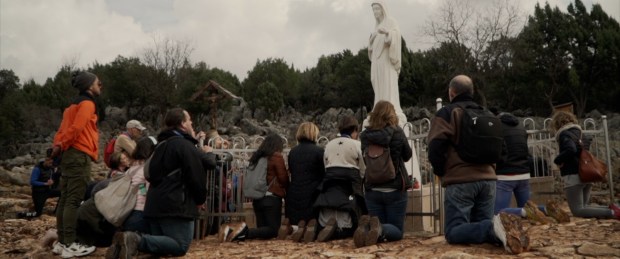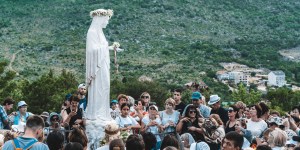With the Note published by the Dicastery for the Doctrine of the Faith with the Pope's assent, the Church has acquired a new instrument to guide the faithful in cases of alleged supernatural phenomena. This will enable it to respond more effectively to questions that may arise concerning an alleged apparition of the Virgin Mary, a purportedly weeping statue of Christ, or the unexplained presence of blood on a host.
Cardinal Victor Fernández, prefect of the dicastery, explained at a press conference in the Vatican that many of the shrines most frequented by the faithful had their origin in phenomena of this type. "In many cases, these phenomena have developed correctly and normally," he stressed.

The Argentine cardinal cited the case of the Marian shrines of Lourdes, Fatima, and Guadalupe. He insisted that the enormous growth experienced by these places of faith "has not depended on a declaration of supernaturality" on the part of the Holy See. He also affirmed that his dicastery would not look into cases recognized by the Holy See or bishops in the past unless necessary — for example, at the request of the bishop responsible, or in the face of problems that would prompt his dicastery to take up the case on its own.
Progress soon for Medjugorje
On the other hand, some of the more controversial shrines, such as Medjugorje, could come under the scrutiny of the new norms. "Thanks to these norms, we believe it will be easier to move forward and reach [...] a prudent conclusion," said Cardinal Fernández, referring to the Marian shrine regarding which the Church has not announced a decision since the first investigation, concluded in 1991.
A major pilgrimage site attracting thousands of pilgrims each year, Medjugorje has its origins in purported apparitions of the Virgin Mary to young children on a hill in Bosnia-Herzegovina in 1981. The Virgin is said to have presented herself to them as Queen of Peace, calling for conversion and reconciliation.

An investigation carried out between 2010 and 2014 did not result in a decision by the Holy See. In order to accompany the many pilgrims traveling there despite the Church's cautious attitude, Pope Francis appointed an apostolic visitor in 2018 and decided to authorize diocesan pilgrimages to Medjugorje in 2019.
"Assuming there is a nihil obstat [recognition that this devotion presents no risk, ed. note], perhaps we will have to clarify that certain details are not to be taken seriously," the prefect further said. "If I remember correctly, the Madonna over there was giving orders, about the time, the place, what the bishop should do ... this needs to be clarified," he added, admitting that he was not yet familiar with the case.
After examining it, his dicastery will have to choose one of the six conclusions provided for in the norms for ruling on the phenomena in question. It should do the same for "other cases that have been present in the dicastery for many years."
[See the six possible rulings here.]
More pastoral accompaniment
"Marian shrines are truly spaces where people experience a particular presence of the Virgin Mary, because they go there to seek a dialogue with her, and through her, with God," explained Sr. Daniela Del Gaudio, director of the International Observatory of Marian Apparitions and Mystical Phenomena, present during the conference.
She said that the new norms offered shrines "precise indications to guide communities" towards a Marian spirituality "that truly leads to the fullness of Christian life."

The cardinal stressed the importance of shrines in general, recalling that they are the "heart of popular piety in many peoples." Faced with this reality, he promoted a pastoral approach that adapts to the different situations that arise, while insisting on the need to "purify" problematic situations.
In certain cases, the Holy See can prevent the creation of new shrines. It can declare that a phenomenon is not supernatural — as a bishop decided in agreement with the Holy See last March regarding the so-called apparitions at Trevignano, north of Rome. It can also judge that, despite certain positive elements, the critical issues and risks are serious, and therefore ask the bishop to declare publicly that belief is not permitted, and to explain the reasons for this decision.



